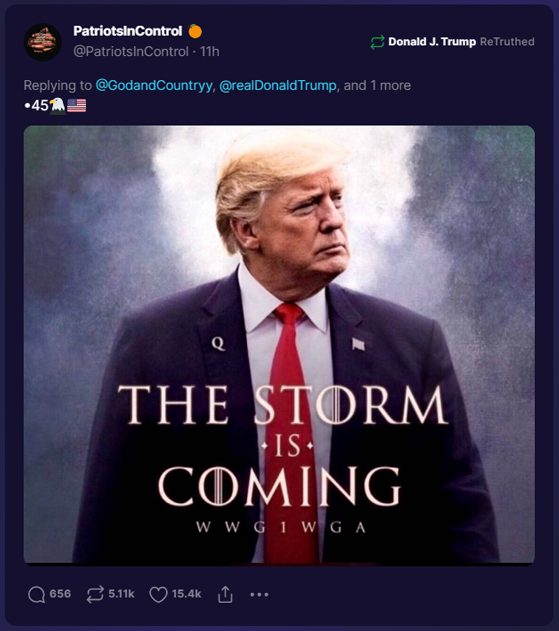Christian nationalism, a complex and multifaceted ideology, intersects the realms of faith, politics, and cultural identity. At its core, it seeks to fuse Christian and national identities, advocating for policies and governance that reflect a particular interpretation of Christian values as foundational to the national identity and public life.
This movement is not monolithic; it varies widely in its manifestations and intensity, ranging from a general preference for a Christian cultural ambiance to more extreme calls for the implementation of laws that strictly adhere to certain Christian doctrines. Despite its name, Christian nationalism is less about religious faith per se and more about leveraging religious identity as a marker of belonging and legitimacy within the national narrative and overall political power structure of the United States and elsewhere.
False claims of national origin
The Christian nationalists of America today present a false narrative surrounding the origin story of the United States as part of their fundamental claim to power. Contrary to their claims of America as a Christian nation, the Framers of the Constitution took great pains to separate religious authority from democratic governance — having seen the deleterious effects of state imposed religion by the Church of England. In fact, one of the primary reasons many original American colonists left their native homeland was to flee the mandates of the church and seek the religious freedom to worship in their own ways, whether Puritanism, Lutheranism, or other Protestant sect.
Part of a broader pattern of right-wing Big Lies, the idea that the Founders intended anything other than a strong separation of church and state belongs in the realm of propaganda, not in the realm of truth. Moreover, Jesus himself seemed to be quite allergic to the desire for accumulating political power — famously saying, “render therefore unto Caesar the things which are Caesar’s; and unto God the things that are God’s” in Matthew 22:21. The imposition of Christian nationalism in America would destroy the very religious freedom the United States was actually founded upon.

Dictionary of Christian nationalism terms
We will continue to update this dictionary of terms relating to Christian nationalism as the ideology evolves in American politics. For additional reading, check out our collection of books about Christian nationalism.
- 10 Commandments — The 10 Commandments are a set of biblical principles relating to ethics and worship, which play a fundamental role in Judaism and Christianity. They include directives on worship, morality, and human relationships, as outlined in the books of Exodus and Deuteronomy in the Bible.
- acolytes — Acolytes are individuals who assist in religious ceremonies, particularly in Christian liturgical traditions, performing duties such as carrying processional crosses, lighting candles, and assisting with preparations for communion. Their role is to support the clergy and enhance the ceremonial aspects of worship.
- affirmative action — Affirmative action refers to policies and measures designed to increase opportunities for underrepresented groups in areas such as education and employment, aiming to redress historical injustices and discrimination. It seeks to promote equality by considering factors like race, gender, or ethnicity in decision-making processes.
- American exceptionalism — American exceptionalism is the idea that the United States is inherently different from other nations, often due to its unique historical evolution, democratic institutions, and national ethos. This concept suggests that America has a special role to play in human history and global affairs.
- apostles — the primary disciples of Jesus Christ in Christianity, chosen by Him to spread His teachings. The term traditionally refers to the Twelve Apostles in the New Testament, who were sent out to proclaim the message of Jesus across the world.
- apostates — individuals who renounce or abandon their faith or religious beliefs. This term is often used in a religious context to describe someone who has turned away from the religious faith they once professed.
- baptism — a Christian sacrament of initiation and purification, symbolizing the believer’s spiritual cleansing, rebirth, and admission into the Christian community. It is typically performed by sprinkling water on the head or by immersion, signifying the washing away of sins and the individual’s commitment to follow Jesus Christ.
- Biblical values — the moral and ethical principles derived from the teachings and narratives found in the Bible. These values include love, justice, compassion, humility, and integrity, guiding the behavior and decision-making of believers.
- Biblical worldview — a way of understanding and interpreting the world from the perspective of biblical teachings, seeing all aspects of life through the lens of Scripture. It encompasses beliefs about God, morality, human nature, and the purpose of life, influencing how individuals perceive and interact with the world around them.
- born-again — within Christian nationalism, being born-again is not just a private spiritual matter but also a call to action to bring about a nation that aligns with specific Christian principles. The born-again experience is thus politicized, serving as a catalyst for engaging in activities aimed at shaping national identity, policy, and governance in accordance with a particular Christian worldview.
- Calvinism — a major branch of Protestantism that follows the theological tradition and forms of Christian practice set down by John Calvin and other Reformation-era theologians. It emphasizes the sovereignty of God, the doctrine of predestination, and the total depravity of humans, among other key points.
- cheap grace — cheap grace refers to the concept of receiving forgiveness and moral absolution without any personal cost or commitment to ethical transformation. It’s often criticized for reducing the complexities of faith and morality to a simplistic transaction, undermining the depth and rigor of spiritual practice.
- “Christian journalism” — refers to the practice of journalism within a Christian framework, emphasizing reporting, analysis, and commentary that align with Christian values and perspectives. It aims to provide news and insights on various issues, including moral, ethical, and social matters, from a Christian viewpoint.
- Christian Reconstructionism — Christian Reconstructionism is a theological movement within conservative Calvinist Christianity, advocating for the application of a particular interpretation of biblical law to all areas of life, including civil governance. It promotes the idea that society should be reconstructed along biblical lines, with a significant emphasis on the Old Testament’s legal codes.
- City Upon a Hill — The phrase “city upon a hill” is often invoked in conservative discourse to emphasize America’s role as a beacon of freedom, democracy, and moral leadership for the world. Originating from a sermon by Puritan leader John Winthrop in 1630, the term has been adapted to advocate for a vision of American exceptionalism and the importance of upholding traditional values.

- clergy — individuals who are ordained for religious duties in Christian and other religious traditions. They perform various spiritual functions, including leading worship services, performing sacraments, and providing pastoral care to the congregation.
- communion — Communion, also known as the Eucharist in some Christian denominations, is a sacrament that commemorates the Last Supper of Jesus Christ with His disciples. It involves the partaking of bread and wine (or grape juice) as symbols of Jesus’ body and blood, signifying participation in the divine grace.
- Conservative Resurgence — historical period in the late 1970s and early 80s that started to reverse the trend backwards from the political and economic philosophies of the New Deal, and away from church liberalization efforts and towards a more hardline, fundamentalist approach complete with purges of moderates
- conversions — In a religious context, conversions refer to the process by which an individual adopts a new religious belief, often resulting in a change of affiliation from one religion to another. It typically involves a personal experience of transformation and acceptance of the new faith’s tenets.
- culture war — The term “culture war” refers to the ideological and social conflicts that arise when different groups clash over issues like religion, morality, politics, and social norms. These battles often manifest in debates over topics such as LGBTQ+ rights, abortion, immigration, and the role of government, and they can deeply influence public opinion and policy.
- “defense of marriage” — The term “defense of marriage” often refers to political and social efforts to uphold the traditional definition of marriage as a union between one man and one woman. It is frequently used in debates over the legal recognition of same-sex marriages and related legal and policy issues.
- demons — In Christian theology, demons are considered malevolent spiritual beings opposed to God and humanity. They are often associated with temptation, possession, and various forms of evil, and are believed to be fallen angels led by Satan.
- End Times — The End Times, also known as the eschaton in theological terms, refer to a future period described in biblical prophecy where world events reach a final climax, leading to the return of Jesus Christ, the final judgment, and the establishment of God’s kingdom. Different Christian traditions have various interpretations of the signs, events, and timing related to the End Times.

- family values — “family values” often refers to a set of traditional beliefs that emphasize the importance of the nuclear family, marital fidelity, and conservative religious principles. These values are seen as the bedrock of a stable society and are often contrasted with more progressive or liberal social norms.
- flyover country — a colloquial term often used to describe the central regions of the United States perceived as less significant or overlooked by coastal elites. It implies a region primarily flown over by air travelers from one coast to the other, with the insinuation that these areas are less culturally or politically important.
- fundamentalism — originally referred to a movement within American Protestantism that emerged in the early 20th century, emphasizing a literal interpretation of the Bible and adherence to its fundamental doctrines. The term has since broadened to describe any religious movement across various faiths that holds to strict adherence to foundational principles and often rejects modernism.
- The Golden Rule — treat others how you wish to be treated; Jesus referred to this teaching as his “Greatest Commandment”
- The Great Awakening — a series of religious revivals that swept through the American colonies in the 18th century, marked by a renewed enthusiasm for religious experience, personal piety, and evangelism. It significantly influenced American Protestantism and the country’s social and cultural landscape.
- groupthink — a psychological phenomenon that occurs within a group of people when the desire for harmony or conformity results in an irrational or dysfunctional decision-making outcome. It is characterized by the suppression of dissenting viewpoints, leading to a lack of critical evaluation of decisions.
- holy ghost — one of the three persons of the Holy Trinity; believed to be the active presence of God in the world today. The Holy Ghost is often associated with guiding believers, empowering them with spiritual gifts, and serving as a comforter or advocate.
- holy spirit — considered the third person of the Trinity in Christian theology, alongside God the Father and God the Son (Jesus Christ). The Holy Spirit is believed to be the presence of God active in the world, guiding, inspiring, and empowering believers, and playing a central role in their spiritual life and growth.

- homeschooling — an educational approach where parents choose to educate their children at home instead of sending them to traditional public or private schools. This method allows for a personalized education, often tailored to the child’s learning pace, interests, and values, and can include various educational philosophies and curricula.
- hypocrisy — the act of pretending to hold beliefs, attitudes, virtues, or feelings that one does not actually possess. It is often highlighted in moral and religious discussions as a vice, where an individual’s actions contradict their professed values, demonstrating a lack of integrity or moral consistency.
- i360 — Charles Koch‘s massive database of 230 million voters and their intimate demographic data, deployed for use in a wide range of Republican campaigns
- The Johnson Amendment — The Johnson Amendment is a provision in the U.S. tax code, enacted in 1954, that prohibits nonprofit organizations, including churches and other religious organizations, from endorsing or opposing political candidates. It aims to maintain the separation of church and state by restricting the political involvement of tax-exempt entities.
- Kingdom action — “Kingdom action” refers to activities or initiatives undertaken by Christians to advance the kingdom of God on Earth, in alignment with the teachings and example of Jesus Christ. This can include evangelism, social justice efforts, charitable works, and other forms of ministry aimed at reflecting God’s love and righteousness in the world.
- liturgy — Liturgy refers to the prescribed set of rituals, prayers, and ceremonies that make up the formal public worship in religious traditions, particularly in Christianity. It serves as a structured framework that guides the communal expression of faith and devotion.
- love thy neighbor — “Love thy neighbor” is a fundamental ethical injunction in many religious traditions, emphasizing the importance of treating others with kindness, compassion, and respect, akin to one’s self. In Christianity, it is second only to loving God and is central to the teachings of Jesus Christ.

- “moral decay” — a term often used to describe a perceived decline in the ethical standards, values, and behavior of a society, suggesting a move away from traditional morals towards increased vice and immorality. It is frequently cited in cultural and religious critiques of contemporary social trends.
- the “natural family” — used within certain ideological frameworks to describe a family unit based on heterosexual marriage, with clear gender roles and biological offspring. It is often promoted as the foundational building block of society and a standard for raising children.
- The New International Version (NIV) Bible — The New International Version (NIV) Bible is a contemporary English translation of the Bible, first published in 1978, with a focus on a balance between word-for-word and thought-for-thought translation techniques. It is one of the most popular and widely used modern translations of the Bible.
- the New Right — refers to a conservative political movement that emerged in the United States in the late 20th century, advocating for free market principles, a strong national defense, traditional family values, and a reduction in government intervention in the economy. It played a significant role in reshaping the Republican Party.
- The New Testament — The New Testament is the second part of the Christian biblical canon, consisting of texts that describe the life, teachings, death, and resurrection of Jesus Christ, as well as the early Christian Church’s teachings and history. It includes the Gospels, Acts, Epistles, and Revelation.
- The Old Testament — the first part of the Christian Bible, comprising religious texts that are also sacred in Judaism. It includes a collection of books that cover the creation of the world, the history of Israel, laws, and prophetic writings, laying the foundation for Christian and Jewish religious beliefs.
- nuns — women who have taken solemn vows and dedicated their lives to religious service within a monastic order in Christianity. They live a life of prayer, contemplation, and community service, often within a convent or monastery.

- paleoconservatives — proponents of a political philosophy emphasizing tradition, limited government, civil society, and non-interventionist foreign policies, often advocating for a return to older conservative values and skepticism towards globalism and neoconservatism.
- party of character — The term “party of character” often refers to a political group or movement that emphasizes moral integrity, ethical conduct, and virtuous leadership as central principles. It asserts that character and personal ethics are crucial for public officials and the governance of society.
- pastors — ordained leaders within Christian churches who are responsible for guiding the congregation, preaching, administering sacraments, and providing pastoral care. They play a key role in the spiritual life and education of their community members.
- pious — Pious describes someone who is devoutly religious and deeply committed to the observance of their faith’s rituals and moral principles. It implies a sincere and earnest approach to religious practice and a life led in accordance with one’s spiritual convictions.
- predestination — the Calvinist concept that God has chosen individuals for salvation prior to their birth
- priests — In many religions, priests are ordained figures authorized to perform sacred rituals and provide spiritual leadership to the community. In Christianity, particularly within Catholicism, Orthodoxy, and some Anglican and Lutheran traditions, priests administer sacraments, lead worship, and offer pastoral care.
- proselytizing — Proselytizing refers to the act of attempting to convert someone to a particular religion, belief system, or ideology. It often involves persuasive techniques and may be carried out through various means such as one-on-one conversations, literature distribution, or public speaking.
- Prosperity Gospel — The Prosperity Gospel is a controversial theological belief that financial blessing and physical well-being are always the will of God for them, and that faith, positive speech, and donations to religious causes will increase one’s material wealth. Critics argue it often exploits vulnerable believers.
- Rapture — In Christian eschatology, the Rapture is a future event where believers in Christ will be caught up from Earth to meet the Lord in the air, preceding the tribulation period and Second Coming of Christ. Interpretations of the timing and nature of the Rapture vary among Christians.

- received wisdom — refers to ideas, principles, or knowledge that are traditionally accepted and passed down through generations without being questioned or critically examined. It often pertains to established norms or beliefs in society or within specific communities.
- religious freedom / religious liberty — Religious freedom or liberty is the principle that supports the freedom of an individual or community, in public or private, to manifest religion or belief in teaching, practice, worship, and observance without government interference or restriction.
- “right to work” — statutes in some U.S. states that prohibit union security agreements between companies and workers’ unions. Under these laws, employees in unionized workplaces cannot be compelled to join the union or pay regular union dues, even if they benefit from the collective bargaining agreements.
- sacrament — In Christianity, a sacrament is a rite recognized as of particular importance and significance. Different Christian traditions hold varying views on the number and nature of sacraments, but they are generally seen as means of grace. Common sacraments include baptism and communion.
- “school choice” — refers to policies that allow parents to choose their children’s educational pathways, including public, charter, private, and home schooling options. It’s based on the idea that providing various educational options can improve the quality of education by fostering competition.
- Second Vatican Council — The Second Vatican Council, or Vatican II, was an ecumenical council of the Roman Catholic Church held from 1962 to 1965. It marked a significant shift in liturgical practices, ecclesiastical approach to the modern world, and the promotion of ecumenism, updating the church’s role in the contemporary world.
- sermon — an oration or lecture by a preacher (often a religious leader) intended to provide moral or spiritual guidance, typically based on a passage from the Bible. Sermons are a central part of Christian worship services.

- seven mountains dominionism; 7D — Christian movement that advocates for Christian influence in seven major spheres of society: Religion, Family, Education, Government, Media, Arts & Entertainment, and Business. The goal is to bring about societal transformation in accordance with biblical principles.
- soft coup d’etat — refers to a non-violent overthrow of a government or significant change in power structures, achieved through non-traditional means such as legal challenges, political maneuvering, or psychological operations rather than direct military action.
- Telecommunications Act of 1996 — a comprehensive law in the United States that overhauled telecommunications regulation. It aimed to deregulate the broadcasting market, encourage competition, and promote the rapid deployment of new telecommunications technologies.
- televangelism — the use of television broadcasts to spread Christian religious teachings. Televangelists often appeal to viewers for financial donations and may be associated with charismatic preaching and the Prosperity Gospel.
- theoconservatives — Theoconservatives, or “theocons,” are conservatives who advocate for the integration of traditional religious values into public policy and government. They emphasize the role of faith in political life and often champion causes related to moral and social issues.
- “traditional marriage” — typically refers to a socially recognized and legally sanctioned union between one man and one woman. Advocates for this definition often oppose the legalization of same-sex marriage, arguing for the preservation of historical and religious norms.
- War on Christmas — a term used by some to describe perceived attempts to minimize or eliminate public expression of Christmas traditions, symbols, and expressions in secular or public spaces, arguing that such efforts undermine Christian values and cultural heritage.








































